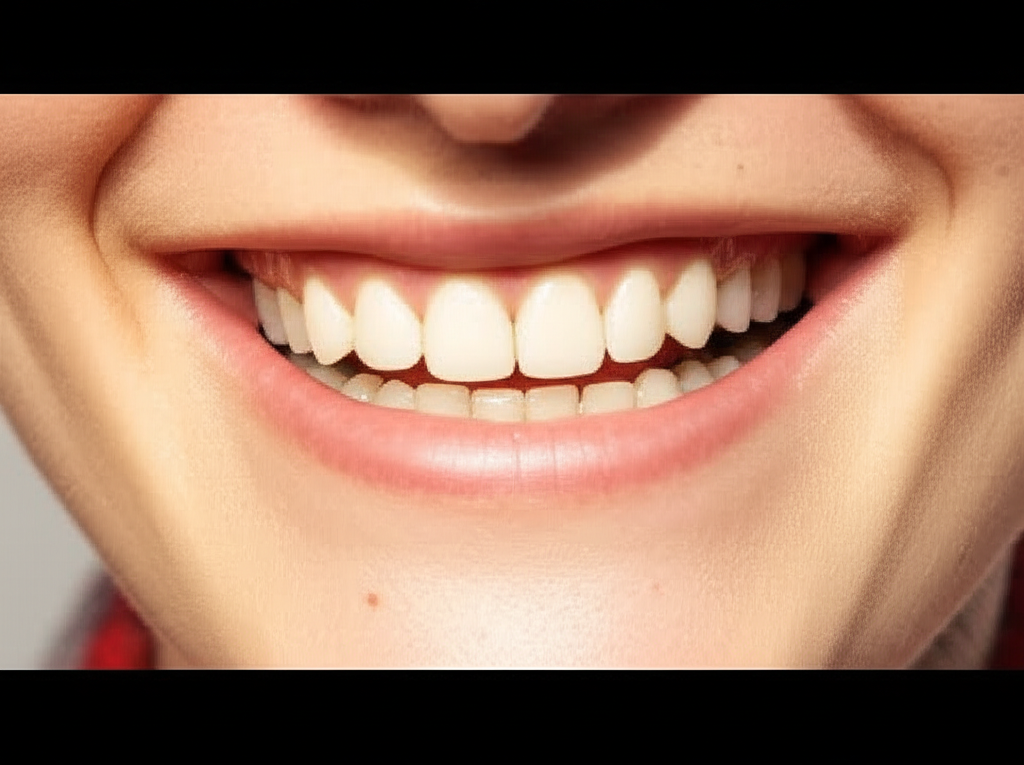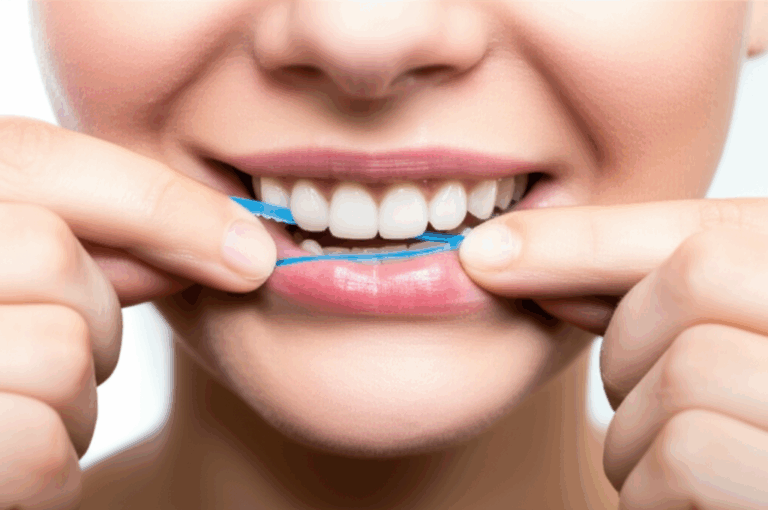
How Do Dental Implants Really Feel? Understanding Sensation, Comfort & Real-Life Expectations
If you’re thinking about getting dental implants, you probably have one big question on your mind: How do dental implants actually feel? Will they hurt? Will they seem strange, or will you just forget about them after some time? It’s a common—and important—question. After all, a dental implant isn’t just a replacement tooth; it’s something you’ll live with every day, whether you’re smiling, eating, or talking with friends.
So, let’s clear things up. Whether you’re worried about the surgery, wondering about the long haul, or just want to know what really happens, you’re in the right place. We’ll go over everything you need to know, from the first day to years later.
In This Article
- The Initial Experience: During & Right After Implant Surgery
- The Healing Journey: How Your Body Adjusts
- The “Natural” Feel: After Everything Heals
- Spotting Problems: When to Call Your Dentist
- Dental Implants vs. Other Tooth Replacements
- What Patients Say & Why Implants Matter
- Conclusion: Expect a Natural Feel with Dental Implants
The Initial Experience: During & Right After Implant Surgery
The Procedure: What Will Happen?
The big question everyone asks—Does it hurt to get a dental implant?
Here’s the good news: Most people compare it to getting a regular filling. Your dentist uses local numbing (like for a cavity), so you won’t feel sharp pain, just some pressure or some vibration, like someone is working on your gums or bone.
If you’re nervous, dentists can also use things to relax you (laughing gas, pills, or even IV sedation). Don’t feel bad asking for something if you’re worried—everyone’s nerves are different.
After Surgery: How Does It Feel When the Numbness Goes Away?
When the numb feeling goes away, your mouth may feel sore, swollen, or bruised—kind of like after having a tooth pulled. It’s not great, but it isn’t terrible pain either.
Most people say:
- Mild to Moderate Pain: Most (85-90%) deal with pain just by using regular pain medicine like ibuprofen or Tylenol. Only a few need stronger pills, and even then, only for a day or two.
- Swelling & Bruising: Your face or gums might swell up for a few days, sometimes with little bruises. Swelling is usually worst around day 2 or 3, then it gets better.
- Fullness/Pressure: Some people feel a “full” or throbbing feeling at the spot for a day or two.
- Eating Changes: You’ll want to eat soft stuff for about a week—think scrambled eggs, yogurt, or soup. Give your mouth a break.
It’s kind of like getting over a small injury. Not fun, but not horrible. If you have really bad pain, or a fever, call your dentist soon.
The Healing Journey: How Your Body Adjusts
Let’s talk about what’s happening inside your mouth.
Osseointegration: Letting Your Bone Get Used to Your Implant
Dental implants are tiny metal posts (usually titanium) that go into your jawbone. The real magic is osseointegration—that means the bone grows around the metal, holding it tight, almost like a real tooth root.
- No “Feeling” in the Implant Itself: The implant itself doesn’t have any nerves. Only your bone and gums feel things.
- How It Feels: During this time (a few months), you might notice the implant a little, or have light soreness, especially if you poke it with your tongue. This lessens as time goes by.
Gums Heal and Settle Down
You might have a healing cap or a temporary tooth on your implant at first. This can feel bulky or strange for a couple days—kind of like getting used to a new filling or mouthguard. Your gums may tingle or feel tender as they get used to the new “tooth.” Most people say by two to four weeks, it just feels normal.
Want to learn about how new technology makes implants better? Check our digital dental lab page.
The “Natural” Feel: After Everything Heals
Here’s what everyone wants to know: Do implants truly feel like real teeth?
The Main Difference: No “Spring” Like a Real Tooth
Sort of—very close! After the implant has fused to your bone and you get your final crown, it looks, bites, and chews just like a real tooth.
But there is a small difference. Your real teeth are attached to the bone with a soft tissue (the “periodontal ligament”) that acts as a cushion and has nerves. That lets you feel small touch or pressure changes.
Implants connect right to the bone, without this cushion. So:
- No pain or sensitivity in the implant itself.
- A little less feeling when you bite on something hard—usually not even noticed with one implant.
- Very stable. It doesn’t move.
Most people—over 95%—say their implant feels natural or almost natural and don’t even remember which tooth is fake after a while.
Eating, Talking, and Daily Life
Want to bite into an apple or chew steak? Implants let you eat most foods with nearly all the same force and confidence as your own teeth.
You’ll notice:
- No Movement: Unlike dentures or partials, implants don’t shift or wiggle. Laugh, yawn—your implant stays put.
- Clear Speech: Saying “th” or “fsh” sounds gets back to normal, since nothing big gets in the way.
- Normal Taste: Because implants don’t cover the roof of your mouth the way some dentures do, food will taste as it should.
Brushing and flossing is almost the same as with natural teeth. Using a water flosser helps, but just treat your implant like a real tooth (with a little care, of course).
If you’re wondering what makes a great implant crown, check out our crown and bridge lab.
Spotting Problems: When to Call Your Dentist
Most dental implants work great, but it’s good to know what’s normal and when to call your dentist.
What’s Normal, and What’s Not?
Light, short soreness after surgery? That’s normal.
A bit of pressure from chewing as you heal? That’s okay for the first weeks.
But call your dentist right away if:
- Pain stays strong for days.
- Swelling, redness, or pus at the site.
- Fever, or you feel sick overall.
- Implant feels loose, or your bite changes.
- Numbness in your lip, chin, or tongue that won’t go away.
These things could mean infection, nerve problems, or implant failure. The sooner you get help, the better your chances of fixing it.
Tip: If you have a real problem, don’t wait and see—call your dentist.
Dental Implants vs. Other Tooth Replacements: What’s the Difference?
Here’s how implants are different.
Implants vs. Dentures: Big Difference
If you’ve had full or partial dentures, you know about plastic pieces in your mouth, hardware that rubs or moves, sticky glue, and sometimes even things slipping.
Implants are:
- Strongly fixed in your jaw—no slipping.
- No glue or taking them out at night.
- No plastic covering the roof of your mouth, so food tastes normal.
You can eat things like corn and crunchy salads again.
Implants vs. Bridges: Stands on Its Own
Regular dental bridges depend on the teeth next to the missing one for support. This usually means shaving down those good teeth. Also, the bone under a bridge can slowly get thin because it’s not used.
Implants:
- Don’t mess with your other teeth.
- Help keep your jawbone strong by acting like a real tooth root.
Want to know how technicians match different replacements to each person? Check out china dental lab to see how it’s done.
What Patients Say & Why Implants Matter
What Patients Say
Most people report:
- Getting used to the implant quickly—often just a few days to a couple weeks.
- Not noticing the difference between the implant and real teeth after a few months.
- Feeling more sure of themselves eating, smiling, and laughing.
- Not worrying about dentures slipping or breaking.
Studies show that almost everyone who gets implants feels happier with their teeth and daily life.
Why People Choose Implants
Implants aren’t just for filling a gap. They mean:
- Long-lasting comfort—they stay put and work like regular teeth.
- Keeping your jaw and face shape.
- Freedom—You don’t have to skip your favorite foods or hide your smile.
Who Can Get Dental Implants?
Dental implants work for most people, but not everyone. You’re probably a good candidate if you:
- Are missing one or more teeth.
- Have healthy gums (no untreated gum problems).
- Have enough bone for the implant, or are willing to have a bone graft if needed.
- Are healthy overall (serious health issues like uncontrolled diabetes can matter).
- Don’t smoke, or will quit (smoking can lower success rates).
If you have loose dentures, or just lost a tooth and want something permanent, ask your dentist about implants. Every case is different—your dentist can help decide what’s best for you.
For customized work and better fit, an implant dental laboratory can help make sure your implant looks and feels right.
Your Healthy Takeaway: Comfort, Confidence, and Control With Dental Implants
Here’s a quick summary of what to expect about how implants feel:
First Experience:
- Most people just feel pressure, not pain, during the surgery thanks to numbing.
- Some discomfort, swelling, and bruising after—worst during first 2-3 days.
- Regular pain meds usually work fine; symptoms go away pretty fast.
Healing Phase:
- Some soreness or feeling around the spot is normal for a few weeks.
- As your bone and implant grow together over 3-6 months, things start to feel totally normal.
Long-Term:
- Implants look, work, and feel almost just like real teeth.
- There’s no cushion (“give”), but most people don’t notice.
- Over 95% of people are happy with their implant—often can’t tell which one is fake after 6-12 months.
Problems:
- Call your dentist if pain, swelling, pus, or numbness sticks around.
- Quick help means better results.
Why Choose Implants?
- Eat, talk, laugh, and smile like normal—no moving around, clicking, or weird taste.
- A good choice for comfort, health, and feeling great about your smile.
Next Steps
- Thinking about implants? Talk to your dentist. They’ll check your mouth and health and answer your questions. You deserve to feel safe and clear about your choice.
- Take care of your new tooth: Brush, floss, and see your dentist often. Clean gums help your implant last for years.
You can make the right choice. With good care, dental implants can change your smile and your life—bringing back comfort, strength, and all the things that make eating and laughing fun.
Further Reading:
Learn more about custom dental work and new kinds of crowns at our dental ceramics lab
Need info on implant costs or insurance? Check how much it might cost and what’s covered at implant cost and implant insurance.
Sources: American Dental Association (ADA), WebMD, The Journal of Oral Implantology, patient survey data. This is for general education only. Always talk with your dentist for advice that’s right for you.
Remember: Everyone’s story is different, but you’re not alone. A brighter, more confident you is possible—just take it one step at a time.








